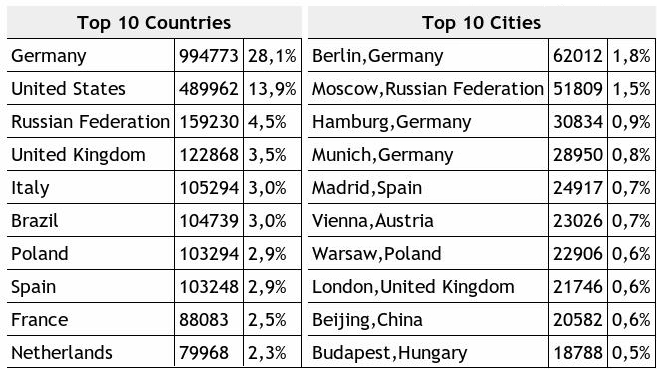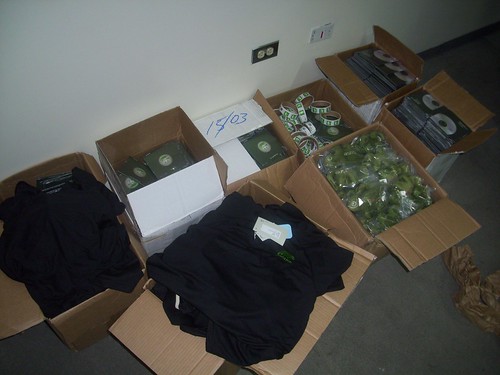Hello everybody,
I want to share some ideas about the success of the Russian openSUSE community, and try to answer the question about its popularity. As you can see it is one of the top places:

The reason for the high popularity of this distribution in Germany is of course the fact that the German SuSE distribution and the main branch of development is located in Nuremberg. Popularity in the U.S. is due Novell – an American company, and of course the language is English. But why are so many people in Russia choosing openSUSE?
Good question. One of the main things that influence the choice of distribution – the quality and localization. The global community plays a top role for quality of distribution and local make it appropriate for Russian language users (of course a local community can be as part of a global community).

Perhaps most important is the documentation. And of course, not everyone wants (or can) read the documentation in English. Everyone wants to read the documentation in their native language. The distribution may be in a good shape and stable, nice and convenient, but without documentation it will use very few. Translated documentation is very important to the community. The translation must have a high quality, understandable, and as it must be kept up to date.
For the community its also profitable that 2 guys from the community working for Novell (in Nuremberg and in Prague). This provides better communication between “developers – community”. It helps to be closer to the project. This allows you to always be aware of all the major news of the project. And of course the translation is much better if they are engaged not just as a translator, but the employee who works on the distribution.
Of course this also applys for software. Although it is not as important as documentation, it still makes an impression on the quality of distribution. Everyone wants to work with the software in their native language %)
A successful community is a group of people who love openSUSE, who understands why the software should be free, who wants to make openSUSE better and better… every day.




